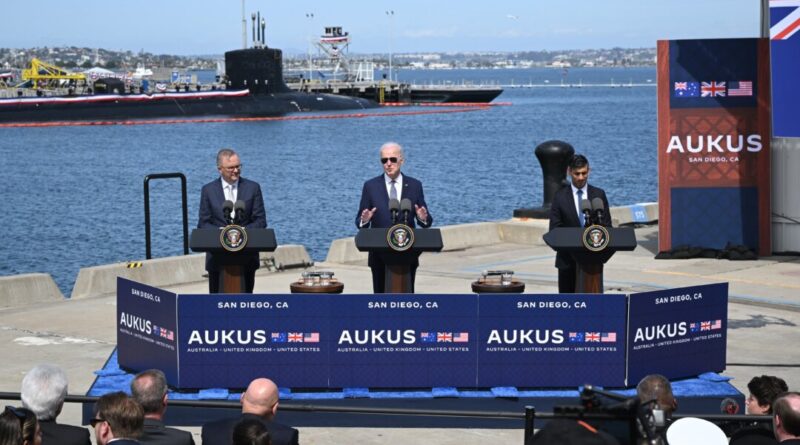AUKUS Collaboration: South Korea, New Zealand, and Canada Under Consideration
Plans for expansion of the AUKUS agreement between Australia, the US, and the UK have been revealed on the third anniversary of its initiation.
In a joint statement released by Australian Prime Minister Anthony Albanese, British Prime Minister Keir Starmer, and U.S. President Joe Biden on Sept. 18, it was announced that they are considering inviting South Korea, New Zealand, and Canada to join as partners on advanced capability projects.
The initial trilateral alliance focused on bolstering deterrence and defence capabilities in the Indo-Pacific region amidst concerns over Beijing’s activities. As part of the deal, the U.S. and UK have agreed to assist Australia in acquiring nuclear-powered submarines, with the first expected to be operational by 2030.
In August, the announcement was made that Australia would take nuclear waste from the U.S. and UK under the agreement. The latest joint statement also highlighted a landmark international agreement for cooperation on naval nuclear propulsion.
While the nuclear submarine partnership is likely to remain exclusive to Australia, any new alliances with additional nations will likely concentrate on enhancing weapons development and capabilities. Consultations have begun to explore opportunities for collaboration on advanced capabilities under AUKUS Pillar II with countries such as Japan, Canada, New Zealand, and the Republic of Korea.
Concerns have been mounting over Beijing’s actions in the Indo-Pacific, which the U.S. State Department has criticized as “gangster tactics.” To address these challenges, amendments have been made to export control regimes, promoting secure, license-free defence trade to enhance innovation and strengthen each nation’s defences.



